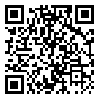Volume 5, Issue 1 (3-2020)
cjhaa 2020, 5(1): 53-61 |
Back to browse issues page
Download citation:
BibTeX | RIS | EndNote | Medlars | ProCite | Reference Manager | RefWorks
Send citation to:



BibTeX | RIS | EndNote | Medlars | ProCite | Reference Manager | RefWorks
Send citation to:
navvabi N, Jahangasht K J, Mashaei M, hallajian K, Mohammadkhah F, Shamsalinia A. Investigating the effect of using healthy aging software on teachers’knowledge of healthy aging. cjhaa 2020; 5 (1) :53-61
URL: http://cjhaa.mubabol.ac.ir/article-1-117-en.html
URL: http://cjhaa.mubabol.ac.ir/article-1-117-en.html
Nasrin Navvabi 

 , Khad je Jahangasht
, Khad je Jahangasht 

 , Maryam Mashaei
, Maryam Mashaei 
 , Kolosom Hallajian
, Kolosom Hallajian 
 , Fatemeh Mohammadkhah
, Fatemeh Mohammadkhah 
 , Abbas Shamsalinia *
, Abbas Shamsalinia * 




 , Khad je Jahangasht
, Khad je Jahangasht 

 , Maryam Mashaei
, Maryam Mashaei 
 , Kolosom Hallajian
, Kolosom Hallajian 
 , Fatemeh Mohammadkhah
, Fatemeh Mohammadkhah 
 , Abbas Shamsalinia *
, Abbas Shamsalinia * 


Abstract: (5063 Views)
BACKGROUND AND OBJECTIVE: Both the increase of the elderly population in the world and the spread of chronic diseases have enhanced the need for training in the global village. One of these trainings is healthy aging one for the elderly. On the other hand, with the spread of COVID-19, nurses' communication with clients has decreased in medical and health centers for establishing and implementing training. Therefore, considering that we are in the third millennium of training, presenting, implementing and following-up the impact of using healthy aging software, trained by distance are an important step towards achieving the goals of improving self-care training in the elderly. Hence, the aim of this study was to investigate the effect of using healthy aging software on 60-70-year-old teachers’knowledge of healthy aging and report the results.
METHODS: This quasi-experimental study was conducted on 80 60-70-year-old teachers in 2018-19. The Tonekabon retired teachers were selected by available sampling method. The subjects were divided into two groups of 40 in each -control and training groups- using software. The intervention was performed by providing healthy aging software in the training group. To collect data, the tools including personal information measurement as a test containing 20 four-answer questions with reliability of 0.78, which was responded in the presence of researchers, and satisfaction measurement of using software with reliability of 0.89 were used. Then, the obtained information was analyzed.
FINDINGS: This study was performed on 80 subjects with a mean age of 64.33±3.64 in the control group and 62.12±3.6 in the training group using software. The results indicated that there was no significant difference in terms of individual and social characteristics in two groups of control and software training (P>0.05). The knowledge level before and after the intervention was 15.5±1.17 and 16.2±2.12 in the control group as well as 16.34±2.6 and 19.72±1.48 in the training group, respectively. There was a significant relationship between the mean scores of knowledge about healthy aging in the software training group and control before and after the intervention (P = 0.000).
CONCLUSION: Taking action to produce appropriate software for training the elderly is a step towards increasing the information of the elderly in the protection and prevention of the complications of old age. Thus, nurses help to promote health and prevent aging complications in the elderly by training the elderly clients via the electronic-training method.
METHODS: This quasi-experimental study was conducted on 80 60-70-year-old teachers in 2018-19. The Tonekabon retired teachers were selected by available sampling method. The subjects were divided into two groups of 40 in each -control and training groups- using software. The intervention was performed by providing healthy aging software in the training group. To collect data, the tools including personal information measurement as a test containing 20 four-answer questions with reliability of 0.78, which was responded in the presence of researchers, and satisfaction measurement of using software with reliability of 0.89 were used. Then, the obtained information was analyzed.
FINDINGS: This study was performed on 80 subjects with a mean age of 64.33±3.64 in the control group and 62.12±3.6 in the training group using software. The results indicated that there was no significant difference in terms of individual and social characteristics in two groups of control and software training (P>0.05). The knowledge level before and after the intervention was 15.5±1.17 and 16.2±2.12 in the control group as well as 16.34±2.6 and 19.72±1.48 in the training group, respectively. There was a significant relationship between the mean scores of knowledge about healthy aging in the software training group and control before and after the intervention (P = 0.000).
CONCLUSION: Taking action to produce appropriate software for training the elderly is a step towards increasing the information of the elderly in the protection and prevention of the complications of old age. Thus, nurses help to promote health and prevent aging complications in the elderly by training the elderly clients via the electronic-training method.
Type of Study: Research |
Subject:
Special
Received: 2020/09/1 | Accepted: 2020/09/15 | Published: 2020/09/19
Received: 2020/09/1 | Accepted: 2020/09/15 | Published: 2020/09/19
| Rights and permissions | |
 |
This work is licensed under a Creative Commons Attribution-NonCommercial 4.0 International License. |




